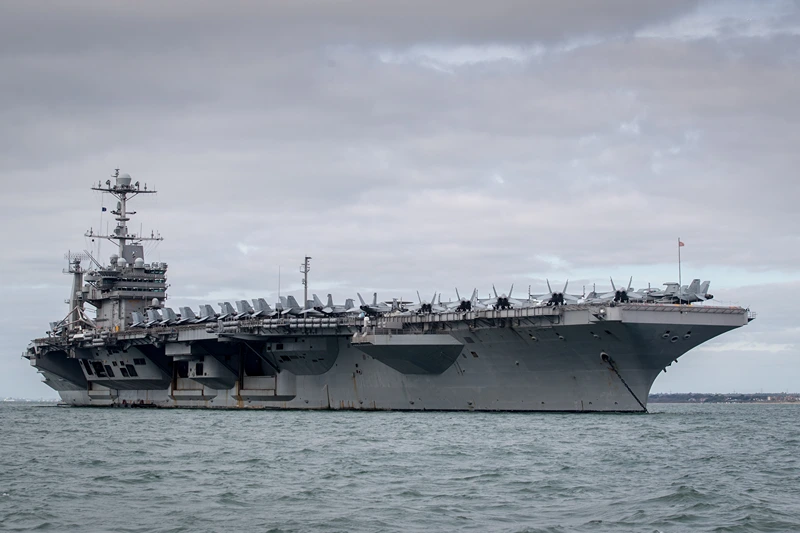

OAN Staff Blake Wolf
12:52 PM – Monday, September 23, 2024
The United States has unveiled its plan to deploy additional troops to the Middle East in response to increased the escalatory actions between Israel and Hezbollah. The conflict has heightened the risk of a broader war in the region, the Pentagon announced on Monday.
Advertisement
Although the Pentagon announced the increase in military personnel in the region, Pentagon Press Secretary Maj. Gen. Pat Ryder did not provide specific details as to how many additional troops would be sent over and what they would be tasked with.
“In light of increased tension in the Middle East and out of an abundance of caution, we are sending a small number of additional U.S. military personnel forward to augment our forces that are already in the region. But for operational security reasons, I’m not going to comment on or provide specifics,” Ryder stated.
The U.S. currently has around 40,000 troops in the region.
The USS Truman, two destroyers and a cruiser departed from Norfolk, Virginia on Monday for a regularly scheduled deployment towards the Mediterranean, which could possibly be set on standby, preparing for the possibility of further escalation.
The increased U.S. personnel in the region comes after Israel conducted an air raid attack against Hezbollah. Reportedly, over 270 Lebanese were killed in the deadliest bombardment since the 2006 Israel-Hezbollah war. Prior to the attacks, Israel warned Lebanese citizens in southern and eastern Lebanon to evacuate.
The State Department has warned American citizens to leave Lebanon, as the threat of a larger war looms over the region.
“Due to the unpredictable nature of ongoing conflict between Hezbollah and Israel and recent explosions throughout Lebanon, including Beirut, the U.S. Embassy urges U.S. citizens to depart Lebanon while commercial options still remain available,” the State Department relayed on Saturday.
Defense Secretary Lloyd Austin reportedly spoke to Israeli Defense Minister Yoav Gallant over the weekend, urgently expressing the need for a cease-fire and de-escalation efforts to avoid a wider war in the region, Ryder stated.
“Given the tensions, given the escalation, as I highlighted, there is the potential for a wider regional conflict. I don’t think we’re there yet, but it’s a dangerous situation,” Ryder continued.
Stay informed! Receive breaking news blasts directly to your inbox for free. Subscribe here. https://www.oann.com/alerts
Advertisements below

